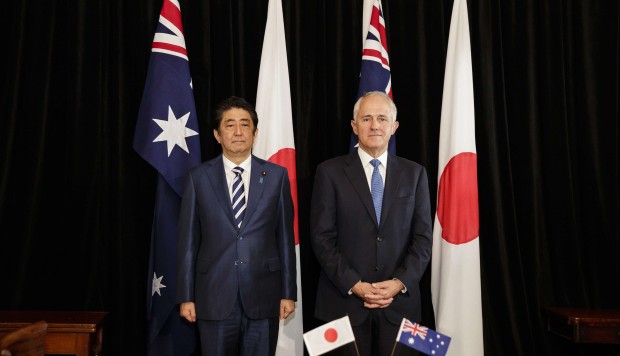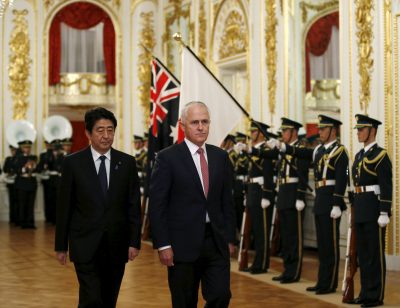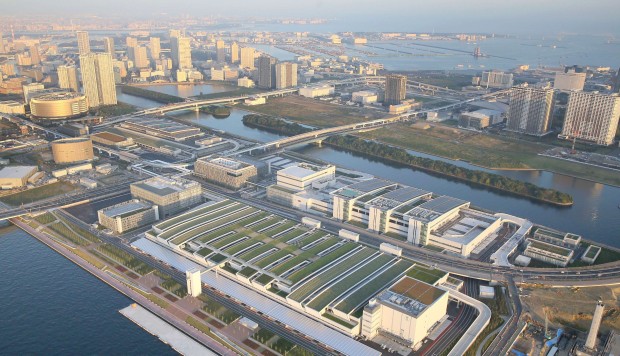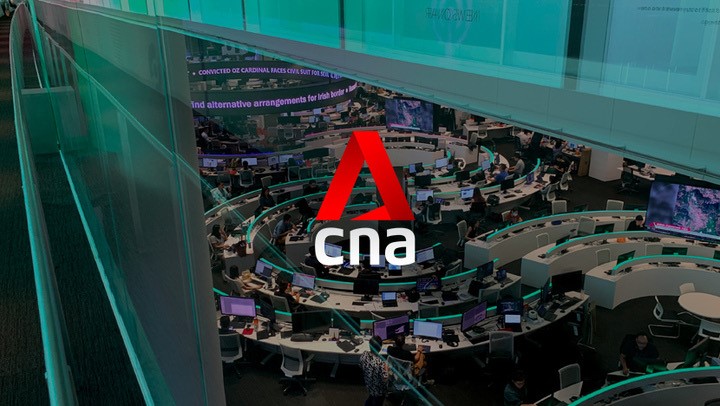Japanese Prime Minister Shinzo Abe reinforces support for TPP during visit to Australia
 Japan and Australia reiterated support for the Trans-Pacific Partnership, days before US president-elect Donald Trump, who has promised to scrap the trade pact, takes office, and pledged to work together to ensure the free trade deal comes into force. After talks with Australian Prime Minister Malcolm Turnbull, Prime Minister Shinzo Abe took the lead on the trade pact covering 12 Pacific Rim nations that was ratified by Japan’s parliament last month. “We agreed that we should demonstrate anew to the world the importance of free trade,” Abe told reporters. “We confirmed that we would coordinate for the early entry into force of the TPP.” The two men later released a joint statement which “stressed that implementing the TPP remains an indispensable priority because of the significant economic and strategic benefits it offers”. Turnbull noted, “For both of our nations the United States remains the cornerstone of our strategic and security arrangements. “We will work closely with the incoming administration, as we have been [doing], to advance the region’s interest and our shared goals.” He had earlier told NHK television in an interview that Australia would “commend” the TPP to the new administration. US President Barack Obama championed the deal saying it would enable Washington to set the global trade agenda in the face of China’s increasing economic might. But Trump has repeatedly shot it down as bad for America and particularly for jobs, casting a dark shadow over its future. The TPP encompasses some 40 per cent of the global economy and also includes Brunei, Canada, Chile, Malaysia, Mexico, New Zealand, Peru, Singapore and Vietnam. Unveiled in 2016 and years in the making, the TPP cannot be implemented in its current form without US ratification. Abe has made it a pillar of his growth platform to revive exports and the world’s number three economy. Trump says he supports free trade but that existing deals, such as the North American Free Trade Agreement between the US, Canada and Mexico, have not been fairly negotiated and do not serve US interests. Close allies Canberra and Tokyo announced Saturday a new defence deal to facilitate closer logistics support and cooperation during combined exercises, training and peacekeeping operations. And they called on their defence ministers “to pursue deeper defence cooperation in 2017, including joint training, exercises, operations and capacity building”. The leaders said the pact would allow their militaries to provide each other with logistical support during exercises, and are working toward an agreement that would make it easier to participate in joint military exercises. “The relationship between Australia and Japan is closer, stronger and more constructive than ever,” Turnbull told reporters after meeting Abe. Following their meeting, Abe said the countries would enhance their coordination on activity in the disputed South China Sea and the nuclear threat posed by North Korea. “In a situation where there is increasing uncertainty and nebulousness on the political, security and economic scenes, it is important to guard and increase the robustness of the free, open and rules-based international order,” Abe said through an interpreter. “It is more necessary than ever before for Japan and Australia as special strategic partners to play a leading role for regional peace and prosperity.” They also unveiled an agreement to exchange sporting expertise with Japan due to host the 2019 Rugby World Cup followed by the summer Olympics in 2020. The prime ministers “condemned in the strongest terms North Korea’s continued nuclear tests and multiple ballistic missile launchers as destabilising and provocative and urged North Korea to desist”. They also voiced “serious concern” at the South China Sea situation, urging restraint by all parties. The Japanese leader arrived in Sydney from the Philippines on Friday night and will continue Sunday his trip that will also take in Indonesia and Vietnam. Additional reporting by Associated Press
Japan and Australia reiterated support for the Trans-Pacific Partnership, days before US president-elect Donald Trump, who has promised to scrap the trade pact, takes office, and pledged to work together to ensure the free trade deal comes into force. After talks with Australian Prime Minister Malcolm Turnbull, Prime Minister Shinzo Abe took the lead on the trade pact covering 12 Pacific Rim nations that was ratified by Japan’s parliament last month. “We agreed that we should demonstrate anew to the world the importance of free trade,” Abe told reporters. “We confirmed that we would coordinate for the early entry into force of the TPP.” The two men later released a joint statement which “stressed that implementing the TPP remains an indispensable priority because of the significant economic and strategic benefits it offers”. Turnbull noted, “For both of our nations the United States remains the cornerstone of our strategic and security arrangements. “We will work closely with the incoming administration, as we have been [doing], to advance the region’s interest and our shared goals.” He had earlier told NHK television in an interview that Australia would “commend” the TPP to the new administration. US President Barack Obama championed the deal saying it would enable Washington to set the global trade agenda in the face of China’s increasing economic might. But Trump has repeatedly shot it down as bad for America and particularly for jobs, casting a dark shadow over its future. The TPP encompasses some 40 per cent of the global economy and also includes Brunei, Canada, Chile, Malaysia, Mexico, New Zealand, Peru, Singapore and Vietnam. Unveiled in 2016 and years in the making, the TPP cannot be implemented in its current form without US ratification. Abe has made it a pillar of his growth platform to revive exports and the world’s number three economy. Trump says he supports free trade but that existing deals, such as the North American Free Trade Agreement between the US, Canada and Mexico, have not been fairly negotiated and do not serve US interests. Close allies Canberra and Tokyo announced Saturday a new defence deal to facilitate closer logistics support and cooperation during combined exercises, training and peacekeeping operations. And they called on their defence ministers “to pursue deeper defence cooperation in 2017, including joint training, exercises, operations and capacity building”. The leaders said the pact would allow their militaries to provide each other with logistical support during exercises, and are working toward an agreement that would make it easier to participate in joint military exercises. “The relationship between Australia and Japan is closer, stronger and more constructive than ever,” Turnbull told reporters after meeting Abe. Following their meeting, Abe said the countries would enhance their coordination on activity in the disputed South China Sea and the nuclear threat posed by North Korea. “In a situation where there is increasing uncertainty and nebulousness on the political, security and economic scenes, it is important to guard and increase the robustness of the free, open and rules-based international order,” Abe said through an interpreter. “It is more necessary than ever before for Japan and Australia as special strategic partners to play a leading role for regional peace and prosperity.” They also unveiled an agreement to exchange sporting expertise with Japan due to host the 2019 Rugby World Cup followed by the summer Olympics in 2020. The prime ministers “condemned in the strongest terms North Korea’s continued nuclear tests and multiple ballistic missile launchers as destabilising and provocative and urged North Korea to desist”. They also voiced “serious concern” at the South China Sea situation, urging restraint by all parties. The Japanese leader arrived in Sydney from the Philippines on Friday night and will continue Sunday his trip that will also take in Indonesia and Vietnam. Additional reporting by Associated Press
© Source: http://www.scmp.com/news/asia/east-asia/article/2062192/japans-abe-pushes-pacific-trade-deal-australia
All rights are reserved and belongs to a source media.


 TOKYO —
TOKYO — 
 TOKYO —
TOKYO — 
 JAPAN’s Takata Corp on Friday agreed to plead guilty to criminal wrongdoing and to pay $1 billion to resolve a U. S. Justice Department investigation into ruptures of its air bag inflators linked to at least 16 deaths worldwide.
JAPAN’s Takata Corp on Friday agreed to plead guilty to criminal wrongdoing and to pay $1 billion to resolve a U. S. Justice Department investigation into ruptures of its air bag inflators linked to at least 16 deaths worldwide. 
 As a freely accessible resource for the region, East Asia Forum relies on donations from those who believe in its importance. More information.
As a freely accessible resource for the region, East Asia Forum relies on donations from those who believe in its importance. More information. 
 JAPANESE Prime Minister Shinzo Abe arrived in the Philippines this week for a two-day trip aimed at shoring up ties with its mercurial new leader and boosting Tokyo’s economic foothold in the face of anticipated competition from China.
JAPANESE Prime Minister Shinzo Abe arrived in the Philippines this week for a two-day trip aimed at shoring up ties with its mercurial new leader and boosting Tokyo’s economic foothold in the face of anticipated competition from China.
 An amount of benzene 79 times the government-set safety limit was detected among other toxic chemicals in groundwater taken from the site in Tokyo’s Toyosu area where the famous Tsukiji fish market is to be relocated, officials of the Tokyo metropolitan government said on Saturday. With the shocking result prompting questions over the veracity of data from previous groundwater tests, which had rarely found any problematic levels of toxins, the metropolitan government’s panel of experts said it will re-examine the groundwater there and release the result of the probe in March. The new finding could delay Governor Yuriko Koike’s decision on whether to allow the planned market relocation to proceed. . “I am surprised to know that detected levels came in far higher than expected,” Koike told reporters. She said separately that the metropolitan government “will have experts discuss” how to deal with the soil contamination. This is the second time that toxic substances contained in groundwater samples from the relocation site have been found to exceed environmental safety limits. Benzene, which also results from the production of gas, is known to cause cancer. The area used to be a gas production plant. The metropolitan government said toxins were detected from groundwater at 72 out of 201 monitoring points. At one spot, benzene 79 times the allowable limit was detected, while arsenic at 3.8 times the government-set environmental limit, and even cyanide, were also detected. Before the latest survey, eight similar surveys had been conducted since November 2014, when the Tokyo government claimed it had finished taking steps to deal with soil contamination caused by the previous gas production at the site. The first seven surveys cleared the environmental standards. But in the eighth test, the results of which were released last September, two toxic chemicals – benzene and arsenic – were detected in groundwater samples at levels slightly exceeding the allowable limits. At a news conference on Saturday, panel chairman Tatemasa Hirata said a surge in the levels of these chemicals in the latest survey is unusual, saying, “There is a need to look into whether this trend will continue.” With the fresh finding, a conclusive report the panel was scheduled to compile in April will be “slightly delayed”, Hirata said. The detection of sharply higher levels of benzene and other substances in the groundwater at the Toyosu site has as the metropolitan government seeks to ensure the safety of the replacement site. “I find [myself] with a renewed sense of surprise at how things have turned out,” said Hiroyasu Ito, chairman of the Tsukiji Market Association. Ito has been asking Koike to decide quickly whether to relocate the aging market, which opened in 1935, to the new site. Yasuhiro Yamazaki, president of a fish processing intermediate wholesaler business, said the latest finding will further raise public doubt about the safety of the relocation site. “It is unavoidable if [the metropolitan government] is suspected of altering [earlier] data,” Yamazaki said. In the past few years, concerns about soil contamination in the new fish market site have resulted in groundwater monitoring. But Koike, upon becoming Tokyo mayor last August, decided to postpone the planned November 2016 relocation of the wholesale market, which also deals in fruit and vegetables, amid concerns about soil and air pollution, as well as mounting costs linked to the project. The planned relocation faced a further setback when Koike disclosed in September that not enough fresh soil had been layer beneath the main buildings of the new wholesale market. The governor said in November that the opening date for the new market will fall some time from the end of 2017 to spring next year, or later, after the expert panel completes between April and May their assessment of the data released.
An amount of benzene 79 times the government-set safety limit was detected among other toxic chemicals in groundwater taken from the site in Tokyo’s Toyosu area where the famous Tsukiji fish market is to be relocated, officials of the Tokyo metropolitan government said on Saturday. With the shocking result prompting questions over the veracity of data from previous groundwater tests, which had rarely found any problematic levels of toxins, the metropolitan government’s panel of experts said it will re-examine the groundwater there and release the result of the probe in March. The new finding could delay Governor Yuriko Koike’s decision on whether to allow the planned market relocation to proceed. . “I am surprised to know that detected levels came in far higher than expected,” Koike told reporters. She said separately that the metropolitan government “will have experts discuss” how to deal with the soil contamination. This is the second time that toxic substances contained in groundwater samples from the relocation site have been found to exceed environmental safety limits. Benzene, which also results from the production of gas, is known to cause cancer. The area used to be a gas production plant. The metropolitan government said toxins were detected from groundwater at 72 out of 201 monitoring points. At one spot, benzene 79 times the allowable limit was detected, while arsenic at 3.8 times the government-set environmental limit, and even cyanide, were also detected. Before the latest survey, eight similar surveys had been conducted since November 2014, when the Tokyo government claimed it had finished taking steps to deal with soil contamination caused by the previous gas production at the site. The first seven surveys cleared the environmental standards. But in the eighth test, the results of which were released last September, two toxic chemicals – benzene and arsenic – were detected in groundwater samples at levels slightly exceeding the allowable limits. At a news conference on Saturday, panel chairman Tatemasa Hirata said a surge in the levels of these chemicals in the latest survey is unusual, saying, “There is a need to look into whether this trend will continue.” With the fresh finding, a conclusive report the panel was scheduled to compile in April will be “slightly delayed”, Hirata said. The detection of sharply higher levels of benzene and other substances in the groundwater at the Toyosu site has as the metropolitan government seeks to ensure the safety of the replacement site. “I find [myself] with a renewed sense of surprise at how things have turned out,” said Hiroyasu Ito, chairman of the Tsukiji Market Association. Ito has been asking Koike to decide quickly whether to relocate the aging market, which opened in 1935, to the new site. Yasuhiro Yamazaki, president of a fish processing intermediate wholesaler business, said the latest finding will further raise public doubt about the safety of the relocation site. “It is unavoidable if [the metropolitan government] is suspected of altering [earlier] data,” Yamazaki said. In the past few years, concerns about soil contamination in the new fish market site have resulted in groundwater monitoring. But Koike, upon becoming Tokyo mayor last August, decided to postpone the planned November 2016 relocation of the wholesale market, which also deals in fruit and vegetables, amid concerns about soil and air pollution, as well as mounting costs linked to the project. The planned relocation faced a further setback when Koike disclosed in September that not enough fresh soil had been layer beneath the main buildings of the new wholesale market. The governor said in November that the opening date for the new market will fall some time from the end of 2017 to spring next year, or later, after the expert panel completes between April and May their assessment of the data released.
 SYDNEY: Japanese Prime Minister Shinzo Abe met his Australian counterpart Malcolm Turnbull in Sydney on Saturday where the pair agreed to deepen defence ties through joint military training and exercises.
SYDNEY: Japanese Prime Minister Shinzo Abe met his Australian counterpart Malcolm Turnbull in Sydney on Saturday where the pair agreed to deepen defence ties through joint military training and exercises.
 Landon. I can see what your saying… Fred `s report is neat… on friday I got a top of the range Ariel Atom from bringing in $5137 recently and just over $10k lass month. it’s certainly the nicest-job I’ve had. I started this 9-months ago and right away began to bring home minimum $69, per-hour follow this link……………..
Landon. I can see what your saying… Fred `s report is neat… on friday I got a top of the range Ariel Atom from bringing in $5137 recently and just over $10k lass month. it’s certainly the nicest-job I’ve had. I started this 9-months ago and right away began to bring home minimum $69, per-hour follow this link…………….. 
 China’s president will preach the advent of a new world order in Davos next week before the high priests of globalisation, who are facing an uprising from voters against their orthodoxy of open markets and borders.
China’s president will preach the advent of a new world order in Davos next week before the high priests of globalisation, who are facing an uprising from voters against their orthodoxy of open markets and borders. 

